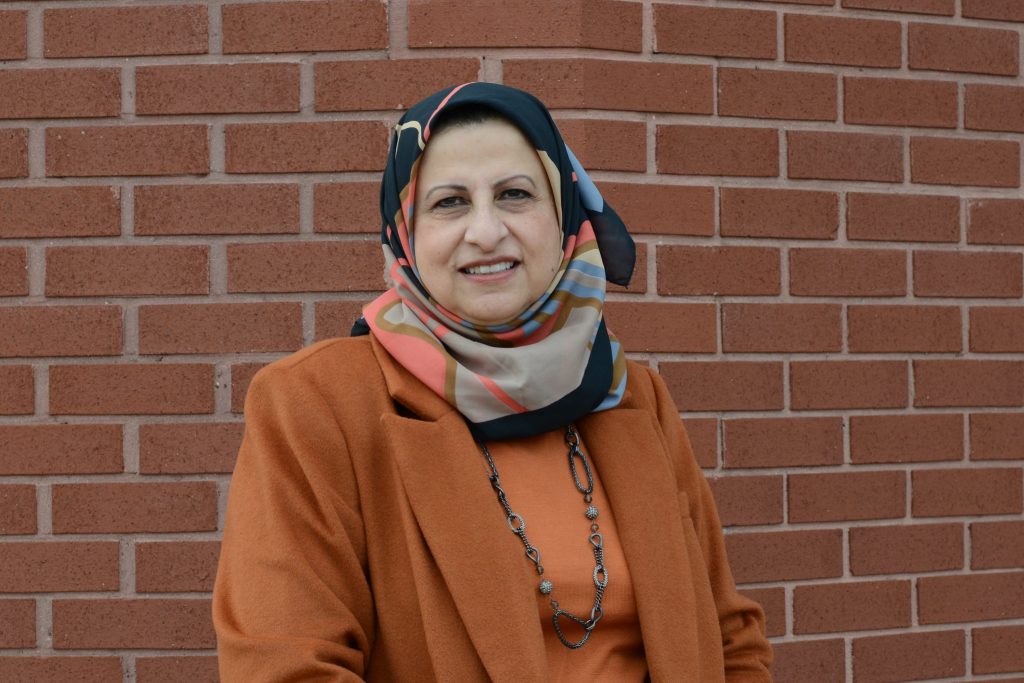Next Mayor Should Look For New Solutions To Old Problems
Crime prevention beyond police, prisons. Transparency and public input should be prioritized.

Janan Najeeb writes: “If the people of Milwaukee would elect me as their mayor, they would have the right to hold me accountable to do what I said I would do.” Photo by Sue Vliet/NNS.
After nearly 18 years, Milwaukee will soon elect a new mayor.
Former Mayor Tom Barrett left our city with a tremendous resurgence downtown and in nearby neighborhoods. During his tenure, the Menomonee Valley, the former Pabst Brewery and many dilapidated buildings turned into shiny hotels, condominiums and office buildings. The Fiserv Forum, Riverwalk and new downtown skyscrapers helped attract the Democratic National Convention to Milwaukee, though significantly downsized due to the pandemic, and now, very possibly, the Republican National Convention.
Unfortunately, former Mayor Barrett also left his successor a slew of serious problems. A record-setting homicide rate, gun violence, poverty-stricken neighborhoods that saw minimal investment in infrastructure, tenuous relations between city residents and law enforcement, unprecedented rates of auto theft, delinquent juveniles and a public school system under pressure from every corner to reform and to function with decreased staff.
Clearly, Milwaukee’s new mayor will be in an unenviable position if he plans to take the job seriously and tackle these issues.
If I became mayor of Milwaukee, I would come into office with a blueprint for my first 100 days so I could hit the ground running. The blueprint would look something like this:
Set goals in collaboration with community, business and religious leaders
Being mayor of a city is not the same as being a corporate CEO. A mayor must give the same consideration to the opinions of community leaders, citizens and organizations as they do to major business leaders.
I would make sure my administration gives high priority to public input by holding a series of meetings during the first 100 days with business, civic, religious and community leaders. I would not allow people to just vent. I would really listen and create a proactive agenda based on common concerns.
Our policy would be to engage citizens in devising solutions. This is their city, and I would be here to serve them. We must work together.
I would institute a weekly briefing for both the public and the press. People should not see me just when I am campaigning, in need of their money and votes. Honesty and transparency are critical in this position. The citizens of this city need to know what is taking place in City Hall each week.
Community safety plan that includes prevention and intervention
The connection between poverty, crime and violence is well documented. People living in affluent areas are often oblivious to crime in areas of concentrated poverty. That is until they want to attend a show, sporting event or eat at one of the many downtown restaurants.
Crime reverberates in a community. You also don’t have to be the victim of a crime to be affected — the impact is there.
We cannot turn away from the pain and injustice our fellow citizens experience just because we all don’t live in their ZIP code. We need a city that is safe for all of us. We will all be stronger for it.
During the first 100 days, I would assemble a team to visit several similar-sized cities that have been successful in decreasing crime. Our team will meet with key leaders to learn what they have done and to see what can be replicated in Milwaukee.
Many successful programs around the country have included strategies such as neighborhood economic development, youth employment opportunities, conflict de-escalation techniques as part of a school curriculum, reduction of liquor stores and the demolition of known drug houses.
In addition, investment in more after-school sports programs and tutoring programs that include dinner will be a great opportunity for mentoring youth and involving them in activities that will benefit their development. Taking what we learn from other cities and input from our fellow citizens, I would institute comprehensive programs that include prevention and intervention.
Milwaukee received hundreds of millions of dollars through the federal American Rescue Plan Act. I don’t see a better use of these funds than investing in areas of concentrated poverty. We will all be winners.
Expanding trauma and mental health services
The lack of adequate resources for high quality, culturally competent mental health services that can also address the impact of trauma is dire. Individuals with untreated mental illness put a tremendous strain on families, law enforcement and the entire community. Mental illness and untreated trauma often lead to self-destructive behavior including drug addiction and suicide. Children who have a parent with untreated mental illness often exhibit learning and behavioral difficulties that can lead to lifelong issues.
During my first 100 days, I would meet with institutions of higher education and mental health institutions to create incentives to help increase the number of behavioral health providers, both physicians and therapists. In addition, law enforcement would be required to institute trauma-informed protocols to de-escalate individuals in crisis and ensure they receive care from proper providers. This will free police for other duties and allow patients to receive appropriate treatment.
If the people of Milwaukee would elect me as their mayor, they would have the right to hold me accountable to do what I said I would do. I would promise an open-door policy to my constituents, a proactive agenda and strong leadership on issues that affect our city. I would transcend partisan politics and work hand in hand with all Milwaukeeans to realize the successful future of this great city we call home.
Janan Najeeb is president of the Milwaukee Muslim Women’s Coalition and director of the Islamic Resource Center. A well-known activist, public speaker and leader in the Muslim community, Najeeb was among those who provided testimony on behalf of the Muslim community during the redistricting discussion.
OPINION: Honesty and transparency are critical priorities for Milwaukee’s next mayor was originally published by the Milwaukee Neighborhood News Service.
More about the 2022 Mayoral Race
- Johnson Carried 81% of City’s Wards - John D. Johnson - Apr 6th, 2022
- Meet Milwaukee’s New Mayor Cavalier Johnson - Jeramey Jannene - Apr 5th, 2022
- Where Mayoral Candidates Stand On Issues - Matt Martinez - Apr 3rd, 2022
- What Do Milwaukee Mayors Do? - Milwaukee Neighborhood News Service - Apr 3rd, 2022
- Acting Mayor Johnson’s Brother Arrested On Felony Charges - Jeramey Jannene - Apr 1st, 2022
- Hundreds watch parent-led virtual listening sessions on K-12 education with mayoral candidates - City Forward Collective - Mar 30th, 2022
- Murphy’s Law: Let’s Not Whitewash Bob Donovan - Bruce Murphy - Mar 28th, 2022
- Donovan, Johnson Clash On Drop Boxes - Jeramey Jannene - Mar 22nd, 2022
- Bob Donovan vs The Clown - Jeramey Jannene - Mar 22nd, 2022
- Donovan Plans Car Theft “Strike Force” - Jeramey Jannene - Mar 21st, 2022
Read more about 2022 Mayoral Race here
Op-Ed
-
Wisconsin Candidates Decry Money in Politics, Plan to Raise Tons of It
 Dec 15th, 2025 by Ruth Conniff
Dec 15th, 2025 by Ruth Conniff
-
Trump Left Contraceptives to Rot; Women Pay the Price
 Dec 8th, 2025 by Dr. Shefaali Sharma
Dec 8th, 2025 by Dr. Shefaali Sharma
-
Why the Common Council’s Amended Budget is Good Policy for Milwaukee
 Nov 20th, 2025 by Alds. Marina Dimitrijevic and Russell W. Stamper, II
Nov 20th, 2025 by Alds. Marina Dimitrijevic and Russell W. Stamper, II






















I had lived in Milwaukee for 35 years and now have watched it for another 20 and in all that time adolescents, primarily young men, have been the challenge. It is their behavior that often turns violence that is directed at their own and strangers that is the visible display of the problem. For 50+ years, year in and year out, and because if goes on today as it did in the late 1960’s obviously all the elected officials, school board members, alderpersons and mayors and county board members and even the county executive have NOT figured out WHY adolescent young men have been and are today the challenge. They know they are the problem because the incarcerate so many of them.
I have suggested a number of times in as “comments” that there is a solution and yet there is NO RESPONSE. Now WHY would a group of people who know there is a problem not be curious enough to begin a conversation? I would suggest that the starting point of that conversation would be that the TRAUMA that all of those adolescent young men have experienced, suffered and been ignored is the beginning point of addressing the most serious challenge facing Milwaukee today. Feel free to call me 414 403 1341 to begin the conversation. Peace
These are all very thoughtful and helpful suggestions. I hope the new mayor takes this advice and also brings you on as an advisor!